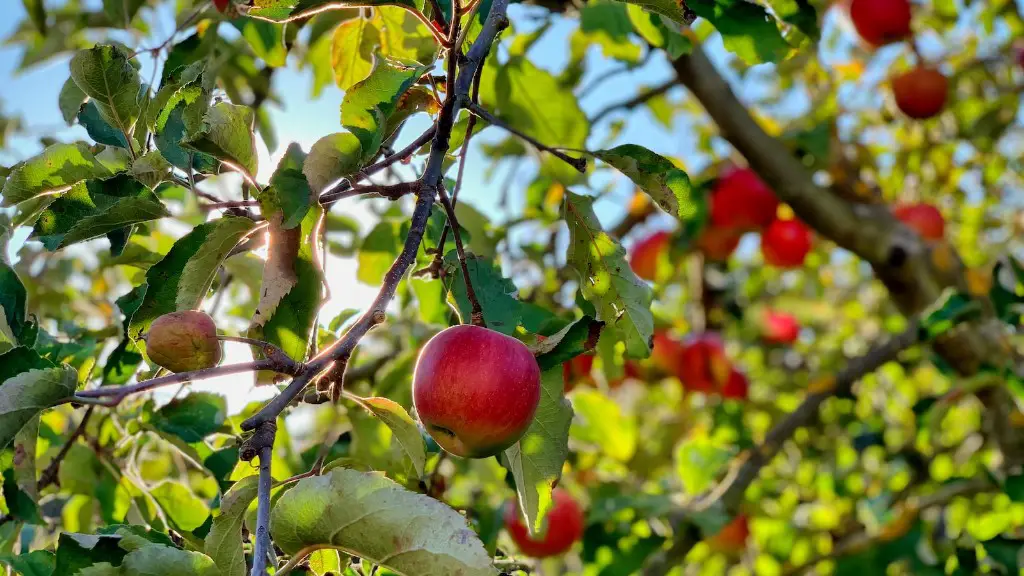Palm tree oil is derived from the fruit of the Oil Palm Tree, which is native to Tropical Regions of Africa and Asia. It has been used for centuries for both health and cosmetic purposes.
This type of oil is highly versatile, and is gaining global popularity for its low price and numerous benefits. It is the richest known source of saturated fat and can be used for multiple purposes, from cooking, cosmetics to moisturising the skin.
The oil extracted from the Oil Palm Tree is mainly composed of saturated fats such as palmitic acid, oleic acid and linoleic acid, as well as a small amount ofproteins. It is characterized by its golden-orange colour, which becomes darker as the oil undergoes a crude or refining process.
In its crude form, palm tree oil is known for its numerous health benefits. It is rich in Vitamin-A and has been shown to improve vision and boost immunity, while also providing essential nutrition to the body. Additionally, recent studies suggest that the oil can be beneficial for those suffering from cardiovascular diseases, as the saturated fats contained in palm tree oil have a different molecular structure than those present in animal fats.
The cosmetic industry also relies heavily on palm tree oil. Its properties make it ideal for a variety of applications, from skin care products to shampoo. The oil is rich in Vitamin-E, which means that it can be used to moisturise, nourish and protect the skin from premature ageing. Thanks to its nourishing properties, it is also commonly used as a main ingredient for handmade soaps and cleansers.
Palm tree oil is also a popular cooking oil. Thanks to its high smoke point and ability to withstand high-temperature cooking, it’s a safer option than other vegetable oils. Furthermore, its high saturated fat content makes it suitable for deep-frying and various other cooking techniques.
All in all, palm tree oil is a highly versatile product. Its numerous health and cosmetic benefits make it an attractive option, while its low price makes it available to a wide range of consumers.
Environmental Consequences
Despite its numerous benefits, the production of palm tree oil has been associated with numerous environmental problems. The oil is mainly produced in tropical regions, and the cultivation of palm trees heavily contributes to deforestation. The destruction of tropical forests has resulted in huge losses of flora and fauna, as well as disruption of soil and water cycles. Additionally, the excessive use of agrochemicals during the cultivation processes may have toxic effects on humans and animals.
Moreover, palm tree oil is mainly produced in socially and economically vulnerable regions, where access to resources is scarce and exploitation of workers is often present. Even though many manufacturers have adopted ethical principles, black market palm tree oil is still available, raising concerns about sustainability and environmental destruction.
Advocates and Critics
The debate over palm tree oil is far from settled. Supporters of the oil point out its many benefits and argue that its production could offer numerous opportunities to developing countries. On the other hand, opponents of the oil claim that its production is the cause of massive deforestation and irresponsible exploitation of land.
Opinions are also divided among major corporations. While some companies are committed to sustainable production processes, others are accused of disregarding ethical principals at the expense of the environment. Finally, a large number of NGOs have emerged to support ethical production of palm tree oil.
Alternative Sources
In recent years, alternatives to palm tree oil have emerged to address the related environmental issues. Substitutes such as coconut oil and avocado oil are becoming increasingly popular, as their production does not require exploitation of natural resources to the same extent as palm tree oil.
Biofuels have also been suggested as potential solutions. Biofuel production from vegetable oils such as palm tree oil is preferred in many countries, as it provides an environmentally friendly alternative to fossil fuels. These sources produce less air pollutants and are easier to store and transport than other biofuels.
Major Conclusions
Although palm tree oil is often controversial, its numerous benefits cannot be denied. By embracing sustainable production practices, companies have an opportunity to produce safe and ethical products that are also beneficial to local communities. Additionally, by investing in alternative sources, consumers have the option to choose a more sustainable and environmentally friendly product.
Food Specifications
In terms of food specifications, palm tree oil is highly appreciated for its low cost, long shelf life and high smoke point. Its estimated shelf life is around two years, while its smoke point is higher than most other vegetable oils. Furthermore, it contains beta-carotene and Vitamin-E, making it an healthy option for numerous recipes.
Palm tree oil also blends well with other oils such as olive oil or flaxseed oil. This advantage makes it suitable for various sauces, dressings and marinades, while also providing a great source of healthy fats.
Impact on the Global Market
The use of palm tree oil has a significant impact on the global vegetable oil industry. It is the most widely produced vegetable oil, representing over 15% of the global market share. Additionally, it is widely used in restaurants, catering services, and fast food outlets, further strengthening its market position.
Palm tree oil also has a huge presence in the cosmetic and personal care industries. It is estimated that over 60% of all cosmetics products contain palm tree oil as a main ingredient. Furthermore, it is also popular amongst eco-friendly beauty brands, which prefer to use natural products.
Conclusion
In conclusion, palm tree oil offers numerous benefits and is widely used in various markets. While the associated environmental issues should not be ignored, the oil can still offer many advantages. By embracing sustainable production practices and investing in alternative sources, palm tree oil can still remain a popular choice amongst local communities, producers and consumers.


